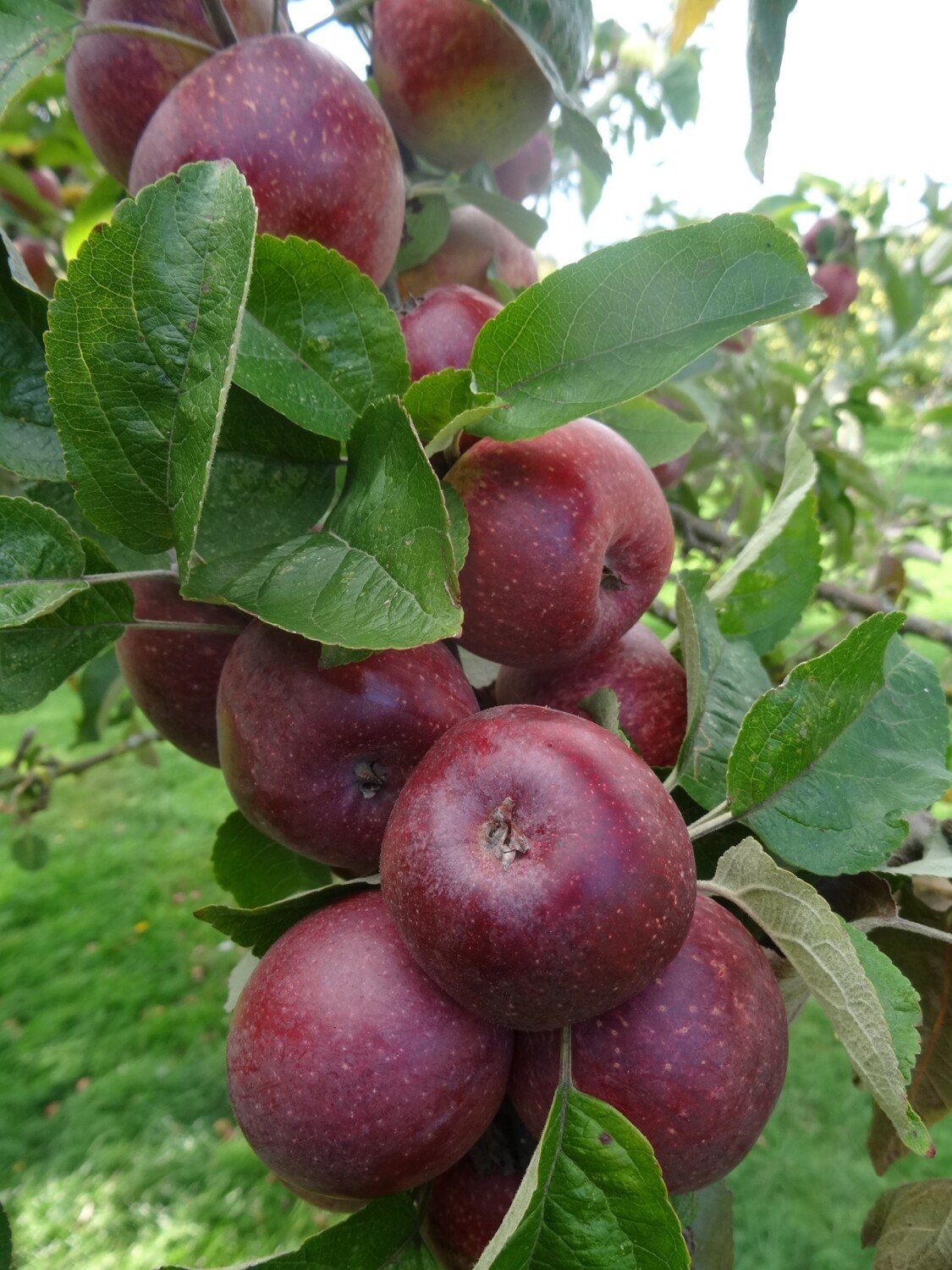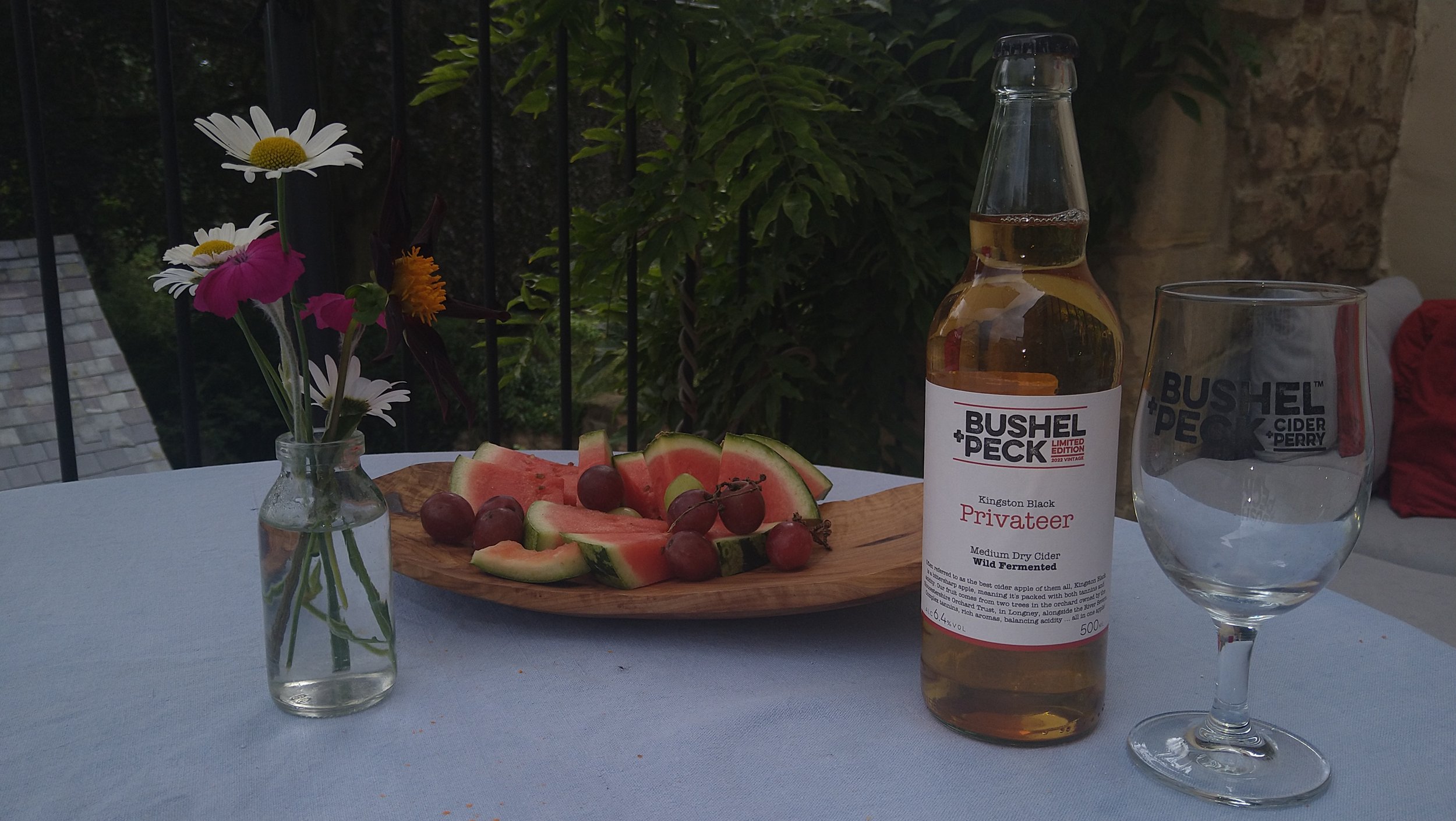Kingston Black - a biography
We're proud of Bushel+Peck’s Gloucestershire provenance and are happy to sing the county's praises, but to ward off any accusations of parochialism we are heading south to immerse ourselves in the nautical traditions of the beautiful county of Devon. Straddled by seas, with the rugged Atlantic coastline to the north and calmer bays and coves abutting The Channel to the south, it’s perhaps not surprising that Devon has provided us with many mariners of repute; Francis Chichester, John Davis, Francis Drake, Henry Every, Humphrey Gilbert, Richard Grenville, John Hawkins, Richard Parker, Robert Falcon Scott, Walter Raleigh … and possibly even Kingston Black?
For his derring-do and the nonchalant insouciance with which he completed his game of bowls before single-handedly defeating the Spanish armada, Sir Frances Drake is possibly the most famous. Being the first Englishman to circumnavigate the world is certainly worthy of attention and his singeing of the king of Spain's beard speaks of great courage - and also helped to delay the armada by a year. When the Spanish did finally arrive, in July 1588, Drake, as one of Admiral Lord Howard's vice-Admirals, certainly contributed to its defeat … along with the helpful weather, the manoeuvrable and sturdy English vessels, the quicker-firing English cannons, the smarter English tactics as well as all the other, less well known, English mariners.
For schoolboys raised on Ladybird books’ version of events some adjustment is required when more nuanced stories emerge in later life. Drake was an unsavoury character in many ways. He was ill-disciplined; his capture of the of the Spanish galleon Nuestra Señora del Rosario may have brought him personal glory but it also jeopardised the formation and good order of the English fleet. He was headstrong; after being knighted he attempted to usurp the heraldic crest of another Drake family, who wanted nothing to do with him. And he was brutal; he participated in the slave trade and he contributed to England's sorry history of death and destruction in Ireland but the act that really distinguishes him from others of that time was his decision to chop off the head of the co-commander of his circumnavigation voyage when they disagreed over their formal objectives; an ignominious end and obscurity for Thomas Doughty, fame and fortune for Francis Drake.
John Davis offers us a contrasting example of a Devonian mariner during Elizabethan times, a man who devoted his life to exploration and to the science of seamanship rather than to self-aggrandisement. He re-discovered Greenland, which had been lost to European navigation since the 13th century (although still very familiar to the people who lived there, of course) and in seeking the northwest passage he explored the sea between Greenland and Baffin Island, an expanse of ocean still referred to as the Davis Strait. He discovered the Falkland Islands in 1592. He published Seaman's Secrets in 1599, based on his own knowledge and experience and which remained THE handbook for practical navigation for many years. He invented the backstaff - the Davis quadrant - that enabled mariners to determine their latitude, which remained the approved way of doing so for the next 130 years. He was scholarly in his approach and shared his geographical knowledge; The Worldes Hydrograpgical Discription published in 1595 probably enabled Hudson to find his bay and Baffin his island. Davis was highly regarded by his crews and colleagues for his quiet humour, his outstanding seamanship, his general competence, his wise judgement, his empathetic nature and his ability to command. On his arctic travels he came across the indigenous inhabitants, the Inuit - referred to as Eskimos at the time - and his description of their way of life and habits was both accurate and sympathetic and although he was essentially a man of peace he did, like Drake, serve in the naval campaigns against the Spanish, both during the grand armada and afterwards, causing havoc aplenty in Spanish fleets.
So far, so true but what follows, particularly the parts in italics, must be considered conjecture …
Our third Devonian mariner, Thomas Black, offers us a further contrast. He was a man of humble background, sufficiently so that there are no records of how he came into being, where he was born or who his parents were. It’s likely that he was illiterate and the historical record contains no evidence that he ever put pen to paper, but his name does crop up from time to time, in ships’ rolls and the like. He first heaves into view in the log of John Davis’ voyage to Newfoundland and Labrador in 1587, when he must have been little more than a boy. The records of this voyage have long been considered to be a textbook model of a ship’s log and hidden away in the muster rolls the name Kingston Black appears for the first time, actually “Thomas Kingston Black, of Devon”, apparently to distinguish him from “Thomas Polperro Black, of Cornwall”. Later entries in the log dispense with Thomases and mention only Polperro Black and Kingston Black. The voyage was sufficiently long that the names stuck, so when he next crops up in the historical record he is only ever referred to as Kingston Black. Several years later Kingston Black was commander of a sturdy carrack named “Mallard”, part of a fleet commissioned by Queen Elizabeth to protect the English fishing fleet in Newfoundland, under the overall command of Peter Easton. At this stage of his life Kingston Black - by now in his late 20s or early 30s - was a proper PRIVATEER, meaning someone bearing a licence from the monarch, allowing and encouraging them and their companions to attack the ships and wharfs of the enemy, as much as possible, especially the dastardly Spanish.
A change of monarch signalled a change for both Peter Easton and Kingston Black. Newly crowned King James sought more peaceful relations with England’s neighbours and so all privateering commissions were rescinded. This didn’t stop them doing what they were doing, but it did mean that they were now doing it as pirates, rather than privateers. They also operated closer to home, at one point even blockading the Bristol Channel, which gave Kingston ample opportunity to resupply the Mallard with his favourite beverage, cider (or cyder, as it it written in the ship’s log). Illiterate though he may have been, Kingston had learned from John Davis of the wisdom and necessity of keeping accurate records, so there is ample evidence of the trouble he took to ensure that the crew of the Mallard were provisioned with “cyder mayde from darke redde apples”, “cyder to our masters likeing” and, most intriguingly, “cyder mayde with darke apples blacke by name”. Do we have here the first ever written record of the Kingston Black apple and of a cider made largely or wholly with Kingston Black apples?
Probably not, but the thought led us to calling our Kingston Black single variety cider PRIVATEER in honour of our fictional friend Kingston Black, who gave his name to this delightful apple, as he scoured the Somerset coast during his blockade of the Bristol Channel, looking for sustenance for his willing crew. Sometimes the truth is stranger than fiction.
Anyhow, shortly after the blockade of the Bristol Channel Kingston decided to give up on piracy and returned home to the small village of Kingston that sits easily atop one of the steeply shaped, rounded hills that abut the coast of Devon in those parts. He had earned a decent crust during his privateering days and had squirrelled enough away to live the remainder of his days comfortably, no doubt spending much of his time in the Dolphin Inn, drinking cider. The pub is still there, a charming, traditional place with a proper pub atmosphere, serving good food, fine ales and (it has to be said) indifferent cider (when last visited, in the summer of 2022). It is certainly worth visiting if you’re in the area, not least to see if the cider offering has become less monochrome … and there are still a few orchards scattered around the area, some of which may even contain Kingston Black apples.
How to find the The Dolphin Inn …
Thanks for reading - you should have better things to do.






